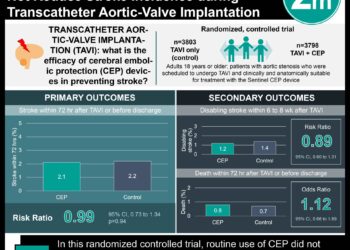[Physician Comment] Increasing malaria prophylaxis doses in pregnancy associated with decrease in low birth weight infants
Feb 12th – In a JAMA study published today, pregnant women receiving ≥ 3 doses of malaria prophylaxis had a 20% lower risk of having a low birth weight (<2500g) infant. [tabs tab1=”2MM Rundown” tab2= “2MM Full Report”] [tab]
Image: PD
1. Pregnant women receiving ≥ 3 doses of sulfadoxine-pyrimethamine for malaria prophylaxis had a 20% lower risk of having a low birth weight (<2500g) infant.
2. No differences in rate of preterm delivery, stillbirths, miscarriages, or neonatal death was observed between the 2-dose versus ≥3 doses groups.
This meta-analysis argues that pregnant women who receive ≥ 3 doses of sulfadoxine-pyrimethamine for malaria prophylaxis benefit from a lowered risk delivering a low birth weight infant without any additional risk of preterm delivery, stillbirths, miscarriages, or neonatal death. They also, on average, have higher hemoglobin levels and lower incidences of placental malaria. This is in support of the new World Health Organization’s (WHO) recommendations that pregnant women should receive at least 3 doses of intermittent preventive therapy during the second and third trimesters. While meta-analyses are inherently limited by the variability in the studies included, the study employs a stringent process to only include studies that were appropriate. In moving forward, given that malaria and HIV co-infections are prevalent in sub-Saharan Africa, more research is needed to further elucidate additional pharmacokinetic and clinical data regarding the drug interactions between anti-malarial drugs and anti-retroviral drugs. Nonetheless, this meta-analysis provides support for the new WHO recommendations to increase the number of doses of malaria prophylaxis to >3 doses given the associated decrease in the incidence of low birth weight infants.
Click to read the study in JAMA
[/tab]
[tab]
Image: PD
1. Pregnant women receiving ≥ 3 doses of sulfadoxine-pyrimethamine for malaria prophylaxis had a 20% lower risk of having a low birth weight (<2500g) infant.
2. No difference in preterm delivery, stillbirths, miscarriages, or neonatal death was observed between the 2-dose versus ≥3 doses groups.
Study author, Dr. Feiko ter Kuile talks to 2 Minute Medicine: Liverpool School of Tropical Medicine
 “The study shows that by providing the drug sulphadoxine-pyrimethamine (SP) more frequently during pregnancy, a period in a woman’s life when she and her baby are particularly vulnerable to harmful effects of malaria, the period of protection is greatly enhanced and the risk of malaria re-infection in women is reduced. We are excited about these findings because there are not that many opportunities for such a cheap and relatively simple intervention to have a such a large potential impact on pregnancy outcome.”
“The study shows that by providing the drug sulphadoxine-pyrimethamine (SP) more frequently during pregnancy, a period in a woman’s life when she and her baby are particularly vulnerable to harmful effects of malaria, the period of protection is greatly enhanced and the risk of malaria re-infection in women is reduced. We are excited about these findings because there are not that many opportunities for such a cheap and relatively simple intervention to have a such a large potential impact on pregnancy outcome.”
This [systematic review and meta-analysis]: This systematic review and meta-analysis included 7 trials consisting of 6,281 pregnancies in sub-Saharan Africa. Women were treated with either 2 doses or ≥ 3 doses of sulfadoxine-pyrimethamine for prenatal malarial prevention. The primary outcome was low birth weight (<2500g) and mean birth weight. Secondary outcomes included: maternal hemoglobin level, placental malaria infection, preterm delivery, spontaneous miscarriage, stillbirth, and neonatal death. Women in the ≥3 dose cohort had a 20% lower risk of having a LBW infant and on average their infants weighted 56g more than the 2-dose group (median birth weight = 2870g). The mean difference in birth weight was greatest in HIV-positive women. The maternal hemoglobin level was higher in the ≥3 doses group (median 0.13g/dL higher) and they were half as likely to have placental malaria (63 vs. 32/1000). No differences in preterm delivery, stillbirths, miscarriages, or neonatal deaths were discovered.
In sum: This meta-analysis argues that pregnant women who receive ≥ 3 doses of sulfadoxine-pyrimethamine for malaria prophylaxis benefit from a lowered risk delivering a low birth weight infant without any additional risk of preterm delivery, stillbirths, miscarriages, or neonatal death. They also, on average, have higher hemoglobin levels and lower incidences of placental malaria. This is in support of the new World Health Organization’s (WHO) recommendations that pregnant women should receive at least 3 doses of intermittent preventive therapy during the second and third trimesters. While meta-analyses are inherently limited by the variability in the studies included, the authors describe a stringent process to only include studies that were appropriate. In moving forward, given that malaria and HIV co-infections are prevalent in sub-Saharan Africa, more research is needed to further elucidate additional pharmacokinetic and clinical data regarding the drug interactions between anti-malarial drugs and anti-retroviral drugs. Nonetheless, this meta-analysis provides support for the new WHO recommendations to increase the number of doses of malaria prophylaxis to >3 doses given the associated decrease in the incidence of low birth weight infants.
Click to read the study in JAMA
By Brittany Hasty and Rif Rahman
More from this author: More patients utilizing hospice services and choosing to die at home over past decade, Early antiretrovial therapy in HIV infection is associated with increased likelihood of CD4+ recovery, World Trade Center rescue workers have an increaed incidence of multiple myeloma, thyroid, and prostate cancer, Protease inhibitor-based antiretroviral therapy in HIV-infected children decreased malaria in Sub-Saharan Africa
© 2013 2minutemedicine.com. All rights reserved. No works may be reproduced without written consent from 2minutemedicine.com. Disclaimer: We present factual information directly from peer reviewed medical journals. No post should be construed as medical advice and is not intended as such by the authors or by 2minutemedicine.com. PLEASE SEE A HEALTHCARE PROVIDER IN YOUR AREA IF YOU SEEK MEDICAL ADVICE OF ANY SORT. Content is produced in accordance with fair use copyrights solely and strictly for the purpose of teaching, news and criticism. No benefit, monetary or otherwise, is realized by any participants or the owner of this domain. [/tab] [/tabs]





